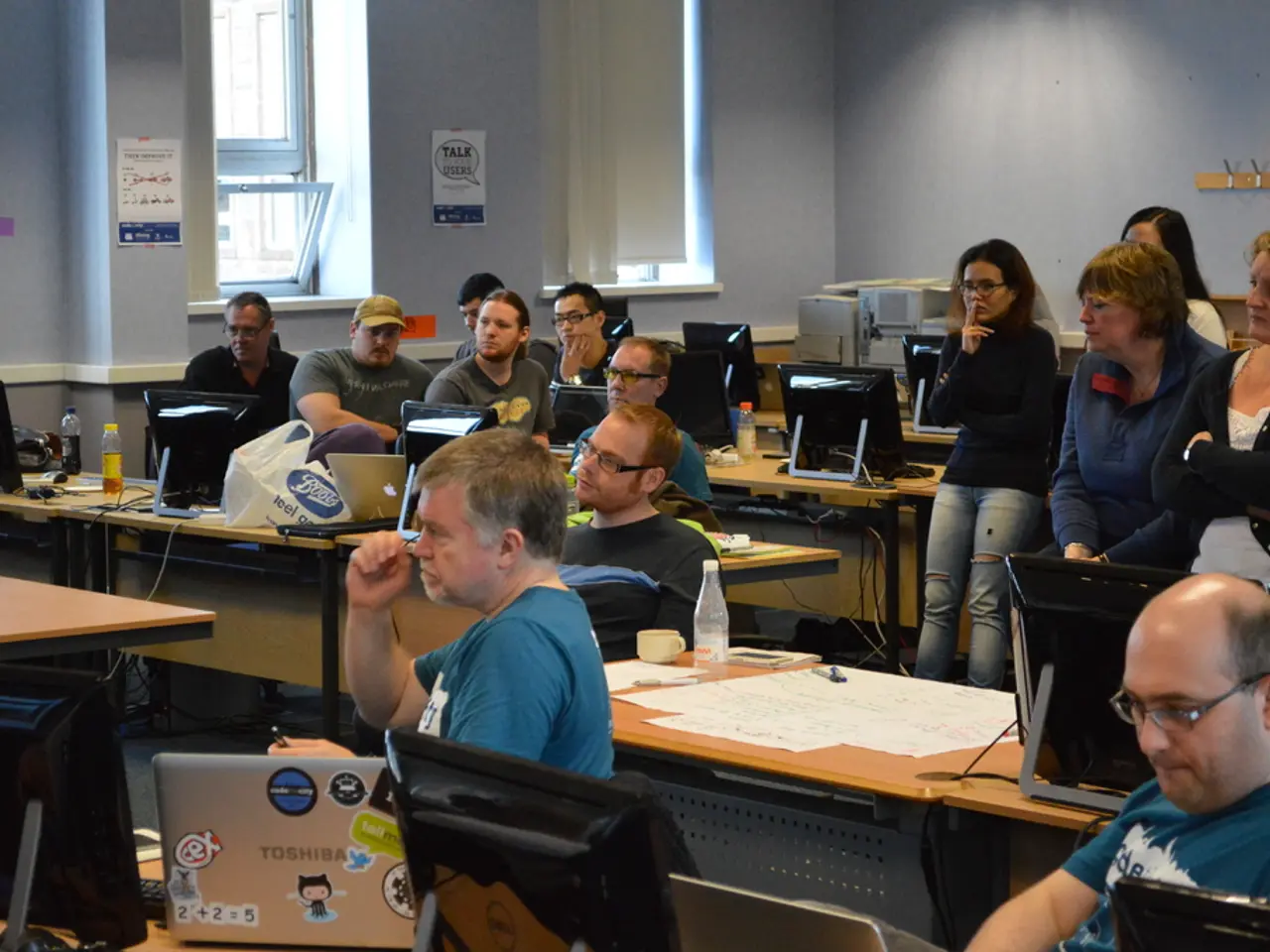Employers Express Concern Regarding Employee Stress Rates, According to GRiD Study
In a recent survey by GRiD, the top health and wellbeing concern for employees in three out of four generations - Baby Boomers, Gen X, and Gen Z - is stress and anxiety related to work. Specifically, employers cited work-related stress for 34% of Baby Boomers, 36% of Gen X, and 38% of Gen Z employees.
However, for Millennials (Gen Y, ages 29-44), employers believe the biggest health concern is stress and anxiety related to home life, such as caregiving responsibilities and managing difficult relationships (43%). This group is also notably affected by anxiety related to finances (42%), which is actually higher than their work-related stress concern (38%).
When employees were asked directly, serious illness (such as cancer or heart disease) was often cited as the top personal health concern across Baby Boomers, Gen X, and Millennials, while Gen Z employees identified workplace stress as their main worry, aligning with employer perceptions.
There has been a slight decrease in concern about work-related stress compared to 2024, but financial worries and debt concerns have increased among Baby Boomers (from 18% to 25%), Gen X (28% to 32%), and Millennials (35% to 42%). For Gen Z, financial concern remained steady at 33%.
GRiD emphasizes that employees often face multiple interrelated wellbeing concerns simultaneously and advises employers to maintain consistent support for all generations rather than frequently overhauling wellbeing strategies based solely on shifting research data.
Key points by generation in 2025 according to GRiD:
| Generation | Top Employer-Perceived Concern | Additional Concerns | Employee Self-Reported Top Concern | |----------------|------------------------------------------------------|--------------------------------------------|--------------------------------------------------| | Baby Boomers | Work-related stress (34%) | Increasing financial worries (25%) | Serious illness | | Gen X | Work-related stress (36%) | Increasing financial worries (32%) | Serious illness | | Millennials | Home life stress (43%) | Financial worries (42%), work stress (38%) | Serious illness, financial stress and debt | | Gen Z | Work-related stress (38%) | Financial concerns steady at 33% | Work-related stress |
These findings indicate that while workplace stress remains a dominant concern across most generations, financial and home life stresses are particularly significant for Millennials. Employers are encouraged to provide comprehensive and consistent wellbeing support that addresses this complexity across all age groups.
Long-established benefits such as employer-sponsored life assurance, income protection, and critical illness cover play a key role in helping employers support staff across physical, mental, financial, and social wellbeing. GRiD spokesperson Katharine Moxham advises that employers should support all staff across a wide range of issues, recognizing that some employee benefits can be tailored for specific groups, but a core offering is important.
[1] GRiD. (2025). Workplace Wellbeing Report 2025. [online] Available at: https://www.grouprisk.org.uk/media/6234/workplace-wellbeing-report-2025.pdf
[2] GRiD. (2025). GRiD Comment on CIPD Stress Survey Results. [online] Available at: https://www.grouprisk.org.uk/news/gird-comment-on-cipd-stress-survey-results
[3] GRiD. (2025). Employee Benefits and Financial Wellbeing. [online] Available at: https://www.grouprisk.org.uk/news/employee-benefits-and-financial-wellbeing
[4] GRiD. (2025). GRiD Comment on Government's Financial Wellbeing Strategy. [online] Available at: https://www.grouprisk.org.uk/news/gird-comment-on-governments-financial-wellbeing-strategy
- The survey by GRiD revealed that stress and anxiety related to work is a significant health and wellbeing concern for Baby Boomers, Gen X, and Gen Z employees, with work-related stress accounting for 34%, 36%, and 38% of these respective generations, respectively.
- However, Millennials (Gen Y, ages 29-44) have different concerns; employers believe their biggest health concern is stress and anxiety related to home life, such as caregiving responsibilities and managing difficult relationships (43%), accompanied by anxiety related to finances (42%), which is higher than their work-related stress concern (38%).
- When employees were asked directly, while serious illness (such as cancer or heart disease) was often cited as the top personal health concern across Baby Boomers, Gen X, and Millennials, Gen Z employees identified workplace stress as their main worry, aligning with employer perceptions.
- Regulation and compliance in the field of workplace wellness and health and wellness are essential, given that employees often face multiple interrelated wellbeing concerns simultaneously and may require support for mental health, physical wellbeing, financial issues, and home life stresses.




